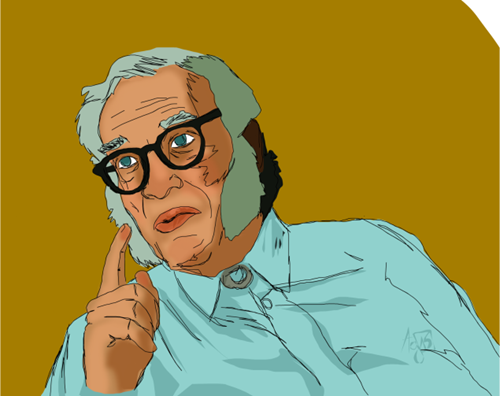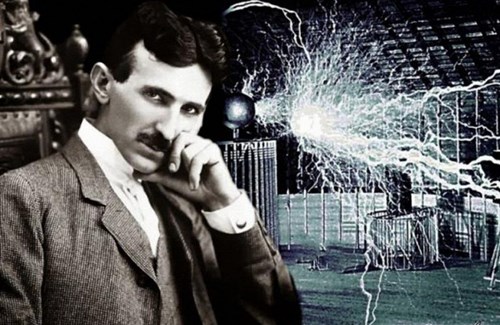7 tech solutions for human productivity that are older than you think
Some tech solutions, including time tracking, have actually been predicted. Read on to see 7 historic times when forecasters were right about the future.

The technological evolution seems not to stop or slow down ever.
This means that futurists have plenty of sources of inspiration and predictions for trends that might soon be on the rise.
The news of tech solutions appears daily, from transportation and introducing self-driving vehicles to entertainment and earning money on hologram performances of the dead stars.
Sometimes, you need to stop and look back to understand the future.
Below there is a list of 7 times when forecasters predicted it right.
The solutions they introduced accelerated our pace and significantly boosted our productivity.
Wearable technologies
Fans of the Back to the Future series can confirm that Back to Future II (released in 1989) offered the audience an amazingly precise picture of what 2015 would look like.
The movie creators showed us some futuristic technologies that are no longer futuristic (TV screens everywhere, video-supported calls, digital payments in a click, and wearable technologies, to name a few).
However, we are still waiting for self-flying cars predicted by the time travel adventure.
Global Position System
In 1993, AT&T stunned the audience with ads that presented the concept of GPS.
Having been directed by David Fincher, the commercials were to be a success.
The featured voice of Tom Selleck went on: “Crossed the country … without stopping for directions?”
Soon, the GPS was fully operational for military use, and a few years later, it was also available for commercial use.
The first fully operational GPS system was launched by the US Department of Defense in 1973.
Today, GPS technology is integrated into various devices like smartphones, cars, and even fitness trackers.
GPS data is crucial for numerous applications beyond navigation, including emergency response, mapping, and location-based services.
The Internet evolvement
Isaac Asimov, a great sci-fi writer, described what we now know as the Internet in 1988. His vision was to connect to libraries of information.
He imagined that the libraries would be in some way a substitution for the teachers.
He practically described online education as a powerful learning tool.
Though he did not fully predict the internet's universal scale, his futuristic vision of this phenomenon is stunning.

Wireless technologies
Nicola Tesla (1856 - 1943) was a genius whose inventions greatly benefited his contemporaries. What amazes us more is that his works contain direct predictions of a faraway future that came true not long ago.

For example, the wireless technologies that he had described:
The wireless transmission of power across the ocean, for instance, obviously opens up an entirely new era in mechanical developments ...it will be a simple matter to keep the uttermost parts of the world in instant touch with each other.
Tesla's vision foreshadowed the development of Wi-Fi and mobile data, enabling instant global communication.
Wireless technology continues to evolve with advancements in 5G and the potential for 6G, promising even faster data transmission speeds and enabling new applications like remote surgery and autonomous vehicles.
‘Time tracking’ literally on hand
🔍Long before it became the universal fashion, the French mathematician and philosopher, Blaise Pascal (1623-1662), was the first person to wear a watch on his wrist (to be precise, on his left wrist).
His ultimate interest in numbers and the idea of accurate calculations greatly contributed to the further evolution of watches for tracking time.
Pascal's innovation laid the foundation for the wristwatch, a staple accessory that has evolved into smartwatches today.
Social networking
Bill Gates wrote his book ‘The Road Ahead’ in 1985, long before we heard of Facebook.
But being a genius, Bill Gates predicted in his work that communication and human interaction would undergo a huge transformation because computers would combine the functions of telephones, post offices, banks, and libraries.
People could communicate with their friends and families and meet new people online. Hello, new (social media) world.
Social media platforms have become a powerful tool for communication, marketing, and even social movements.
However, concerns regarding privacy, misinformation, and social media addiction have also emerged.
Face recognition software
This list would not be complete without Ray Kurzweil’s name, director of engineering at Google, whose recent idea of humans’ digital immortality became very popular.
Almost all of Ray Kurzweil’s predictions draw a lot of attention because they come true so often that it seems he has a crystal ball in which he can call up the future.
His prediction of face recognition was important as it opened up a new era of artificial intelligence exploration.
Wrap Up
The innovative solutions presented in this list are based on expanding human capabilities:
- to reach a greater number of people
- to improve connectivity
- to increase memory storage so that a person can achieve more in a shorter time
- to take control of the environment
- to enhance the personal awareness.
It seems that our civilization won’t cease to expand technologically, which means that we will, as predicted, become digitized. Be well-equipped to meet the incredible future.

